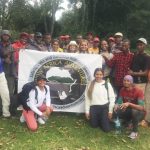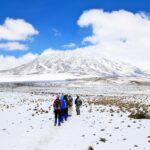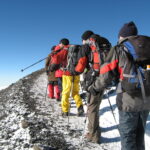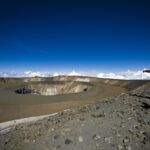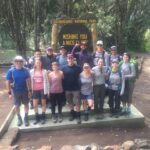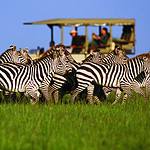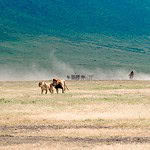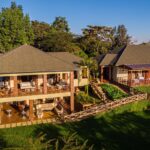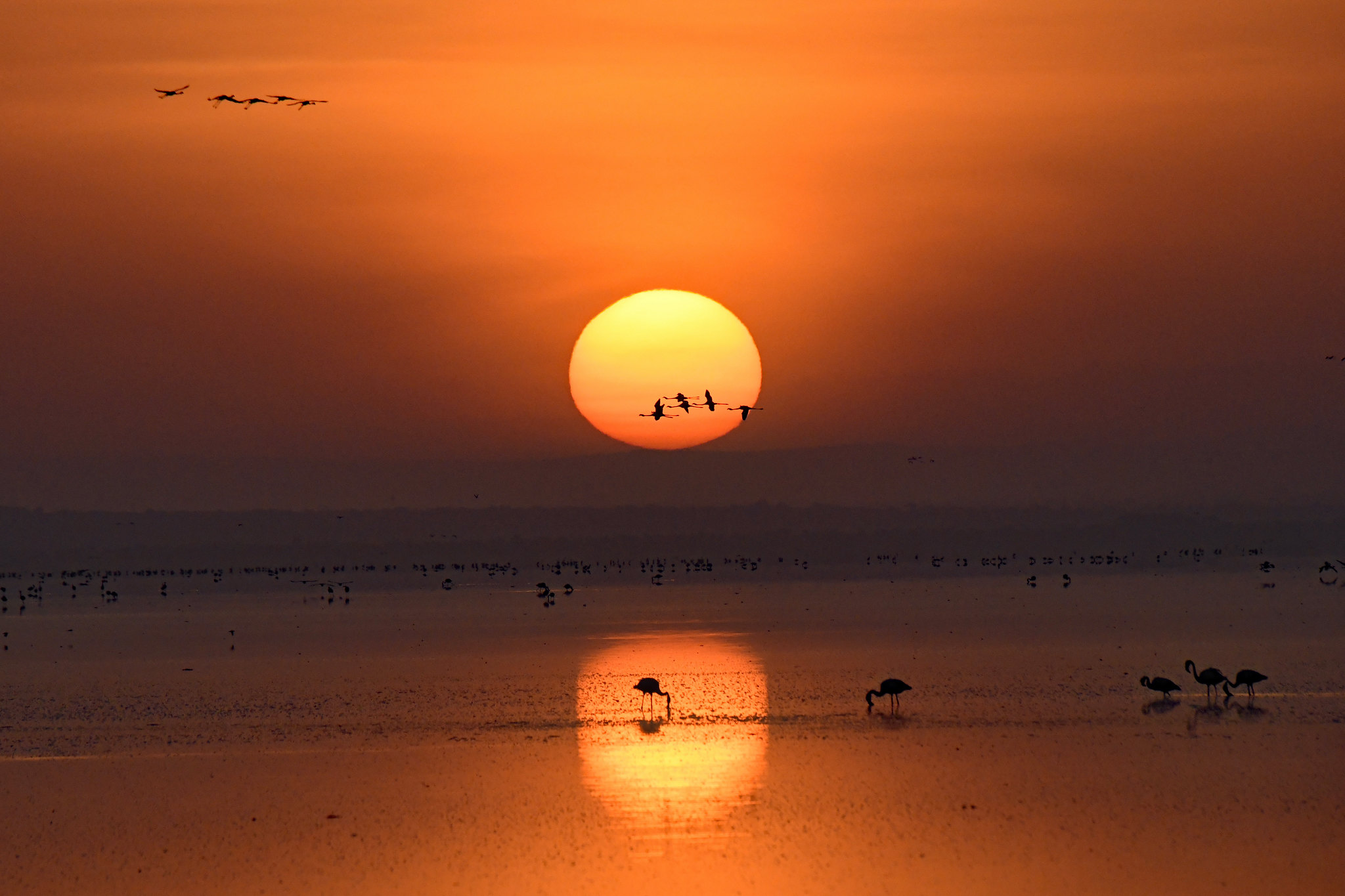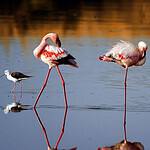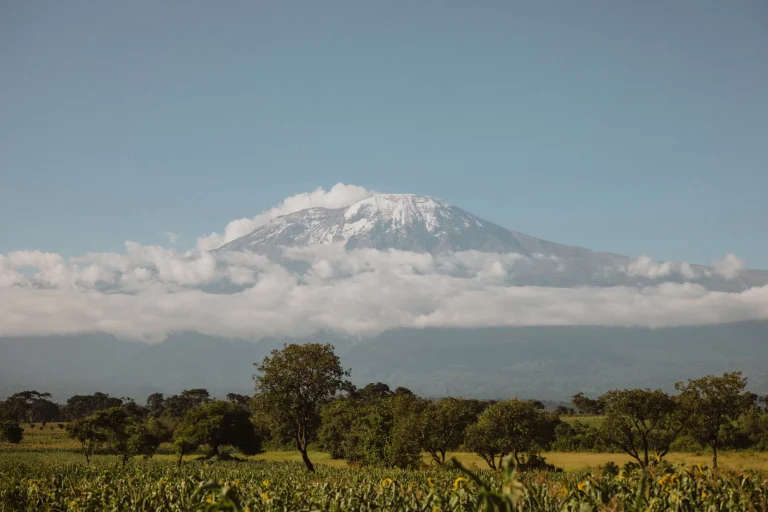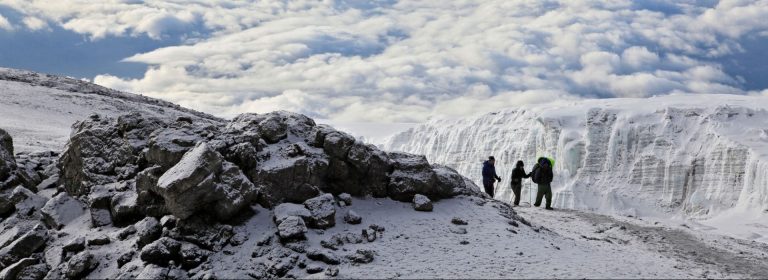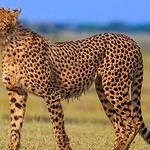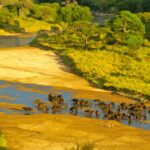Best Time to Go on Safari in Africa | Expert Month-by-Month Guide
Planning your dream African safari? Timing is everything! Discover the best time to go on safari in Africa and ensure unforgettable wildlife experiences. Whether you’re chasing the Great Migration in East Africa or seeking gorillas in Central Africa, this comprehensive guide will help you plan the perfect trip.
Overview of Safari Seasons in Africa
Africa’s diverse landscapes offer incredible wildlife viewing opportunities throughout the year. Understanding the continent’s distinct seasons—dry and wet—is essential for choosing the best time to go on safari in Africa.
Dry Season vs. Wet Season
Dry Season (June–October)
The dry season is often considered the best time to go on safari in Africa. During this time, animals gather around water sources, making them easier to spot. The thinning vegetation also improves visibility, offering clearer views of wildlife.
Wet Season (November–May)
Also known as the “green season,” the wet season brings lush landscapes and fewer tourists. While some roads may become muddy, it’s a fantastic time for birdwatching and witnessing newborn animals. If you enjoy vibrant scenery, this could be the perfect time for photography safaris.
Choosing the Right Season for Your Safari
The ideal time for a safari in Africa depends on what you’re looking for. If you want to witness large herds during migrations, the dry season might suit you best. For those seeking solitude and vibrant landscapes, the wet season offers excellent photographic opportunities.
Best Time for Safaris by Region
Africa spans vast regions, each with its unique climate and wildlife patterns. Here’s a breakdown of the best time to go on safari in Africa for key destinations:
East Africa: Kenya & Tanzania
East Africa is renowned for the Great Migration, one of nature’s most spectacular events. Millions of wildebeests, zebras, and gazelles migrate across the Serengeti National Park and Maasai Mara in search of greener pastures.
Best Time to Go on Safari: June–October (Peak Migration Season)
Highlights: Witness dramatic river crossings where predators like crocodiles and lions stalk their prey. Bonus Tip: Visit Ngorongoro Crater for year-round big cat sightings.
For those interested in cultural experiences, December through March offers ideal weather for exploring local villages and interacting with Maasai communities.
Southern Africa: Botswana, South Africa, Zimbabwe
Southern Africa boasts world-class reserves such as Kruger National Park, Chobe National Park, and Hwange National Park. These areas thrive during the dry season when animals gather around permanent water sources.
Best Time to Go on Safari: May–September
Highlights: Spot elephants, lions, leopards, and other iconic species up close. Green Season Advantage: November–April provides stunning photography opportunities with lush backdrops.
Pro Tip: Consider visiting Mana Pools National Park in Zimbabwe for walking safaris and canoe trips along the Zambezi River—a fantastic time to go on safari in Africa for adventurers.
Central Africa: Rwanda & Uganda
Central Africa is famous for its primate-rich forests, including mountain gorillas and chimpanzees. Trekking conditions vary depending on rainfall but remain accessible year-round.
Best Time to Go on Safari: June–August & December–February (Dry Periods)
Highlights: Encounter endangered mountain gorillas in Volcanoes National Park or track chimps in Kibale Forest. Weather Note: Be prepared for occasional showers even during the dry season.
West Africa
While less explored, West Africa offers unique adventures like birdwatching, cultural festivals, and coastal safaris.
Best Time to Go on Safari: January–March
Highlights: Explore Ghana’s Mole National Park or Nigeria’s Yankari Game Reserve for rare antelope species and hippos. Special Events: Attend the annual Durbar Festival in Nigeria for a blend of culture and wildlife exploration.
Month-by-Month Guide to Safaris in Africa
Here’s a quick reference calendar to help you decide the best time to go on safari in Africa for specific regions:
| Month | Key Destinations | Highlights |
|---|---|---|
| January | Kenya, Tanzania, Rwanda | Wildebeest calving season; Gorilla trekking |
| February | Kenya, Tanzania, Botswana | Continued calving; Elephant migrations |
| March | Botswana, Namibia | End of rainy season; Desert landscapes |
| April | Uganda, Zambia | Chimpanzee tracking; Victoria Falls |
| May | South Africa, Zimbabwe | Start of dry season; Predator activity |
| June | Kenya, Tanzania, Botswana | Great Migration begins; Rhino sightings |
| July | Kenya, Tanzania, Botswana | Peak migration; Lion cubs |
| August | Kenya, Tanzania, Botswana | Intense river crossings; Leopard spotting |
| September | Botswana, Namibia | Dense wildlife concentrations |
| October | Tanzania, Zimbabwe | Last chance for migration; Birdwatching |
| November | Kenya, Tanzania | Transition month; Mixed weather |
| December | Rwanda, Uganda | Primate encounters; Festive vibes |
Tips for Planning Your Safari
To make the most of your African safari, keep these practical tips in mind:
Budget Considerations
- High Season (June–October): This is the peak safari season, but expect higher prices due to increased demand. Book accommodations well in advance.
- Low Season (November–May): Enjoy discounted rates and smaller crowds. Ideal for budget travelers who still want an amazing safari experience.
Weather Tips
- Avoid heavy rains from March to May unless you enjoy the green-season charm.
- Pack sunscreen, insect repellent, and layers for early morning/evening drives, especially during the cooler months.
Wildlife Highlights
- January: Watch wildebeests give birth in the Serengeti—a truly magical time to go on safari in Africa.
- July: Marvel at massive herds crossing rivers in Kenya.
- December: Experience intimate gorilla encounters in Rwanda.
FAQ Section
Is There a Bad Time to Go on Safari?
No, every month has its advantages. It all depends on your preferences—whether you prioritize animal density, scenic beauty, or affordability. Any time to go on safari in Africa can be extraordinary with the right planning.
What Should I Pack for My Safari?
Essentials include comfortable clothing, binoculars, a camera, and sturdy shoes. Don’t forget a hat and sunglasses!
How Far in Advance Should I Book?
For popular parks like Serengeti or Kruger, book at least six months ahead. For off-the-beaten-path locations, three months’ notice may suffice. The best time to go on safari in Africa often coincides with peak tourist seasons, so plan accordingly.
Choosing the right time to go on safari in Africa can transform an ordinary trip into an extraordinary journey. From witnessing the Great Migration in East Africa to trekking through dense jungles in Central Africa, there’s something magical about every destination. Use this guide to plan your itinerary and reach out to Snow Africa Adventure for expert advice tailored to your needs.
Ready to embark on the adventure of a lifetime? Let us help you create memories that last forever!

